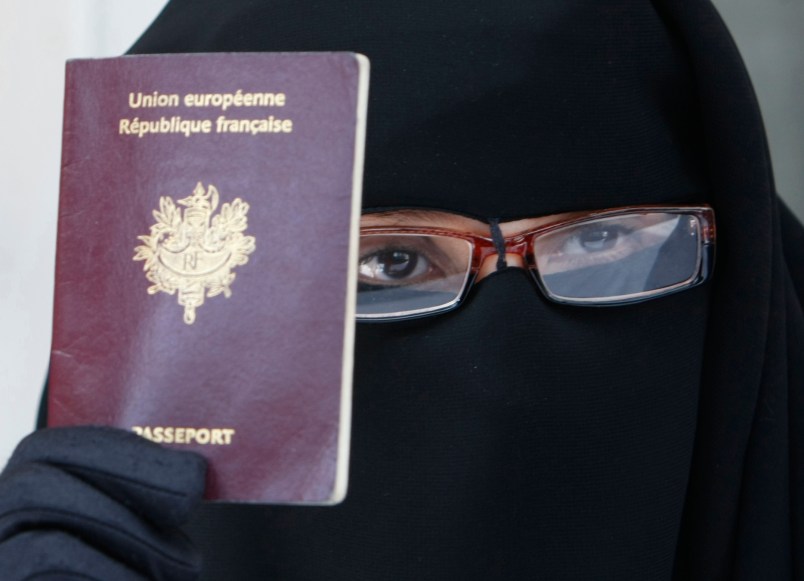PARIS (AP) — The European Court of Human Rights on Tuesday upheld France’s law banning face-covering Muslim veils from the streets, in a case brought by a woman who claimed her freedom of religion was violated.
The ruling by the Strasbourg-based court was the first of its kind since France passed a law in 2010 that forbids anyone to hide his or her face in an array of places, including the street. The law went into effect in 2011.
The court’s Grand Chamber rejected the arguments of the French woman in her mid-20s, a practicing Muslim not identified by name. She said she doesn’t hide her face at all times, but when she does it is to be at peace with her faith, her culture and convictions. She stressed in her complaint that no one, including her husband, forced her to conceal her face — something of particular concern to French authorities.
The court ruled that the law’s bid to promote harmony in a diverse population is legitimate and doesn’t breach the European Convention on Human Rights.
Critics of the ban, including human rights defenders, contend the law targets Muslims and stigmatizes Islam. France has the largest Muslim population in Western Europe, estimated at five million, making the issue particularly sensitive.
Under the law, women who cover their faces can be fined up to 150 euros ($205) or be obliged to attend a citizenship class, or both.
When enacted, the law was seen as a security measure, with veiled women considered fundamentalists and potential candidates for extremist views. Another concern was respect for the French model of integration in which people of different origins are expected to assimilate.
The court concluded the ban is a “choice of society,” giving France a wide margin of appreciation — all the more so because there is no common ground in Europe on the issue. Only a minority of countries ban face veils.
Copyright 2014 The Associated Press. All rights reserved. This material may not be published, broadcast, rewritten or redistributed.







I suppose if want to see yourself as a second class citizen.
Never mind about that. Where are all the hijabs? What about those hijab creators?
I ran into one of these black-clad ‘ghosts’, full hijab + eye netting along with covered hands but fresh white sneakers, on a hike in the Bavarian National Park last Saturday. Spooked the hell out of me coming around the corner of the trail. She was with her minder. It was warm as well. Black clothing and sun…nice. In reality, it was her bearded fat-bellied goober ‘minder’ with a lazy eye that should have been fully covered. There is no place for this in the Western civilized world. Men need to control their urges rather than imprisoning the women.
the court seems to be saying “when in Rome…”
If you want to live in the 8th Century go back in live in a society that lives in the 8th Century. Too bad our court doesn’t think likewise.
Oops, maybe that’s what the holy 5 want?
I have mixed feelings about this one. On one hand I see the breach of personal and religious freedom, by denying people who want to dress in a particular way the right to do so, if not coerced by someone else. On the other hand I see how security issues can arise with unrecognizable people going around the streets completely clad with clothing.